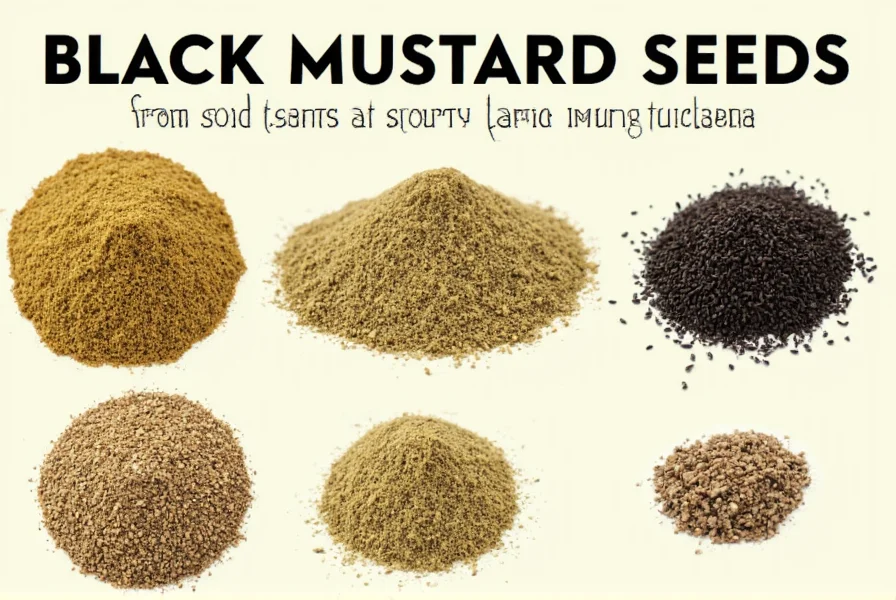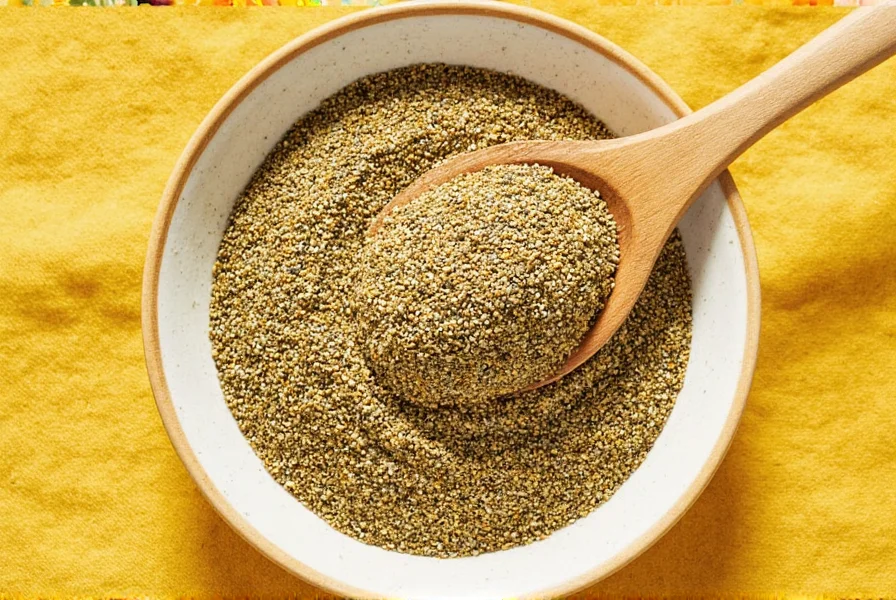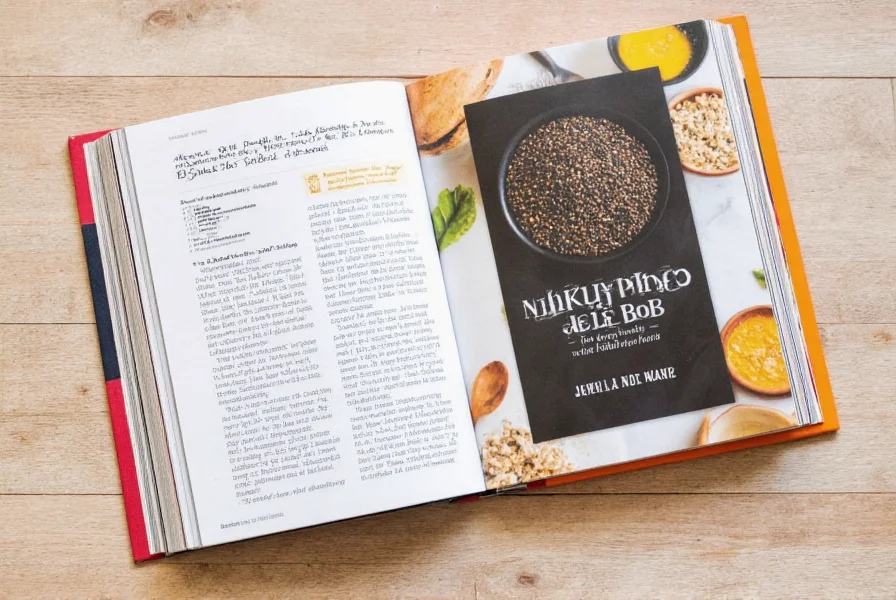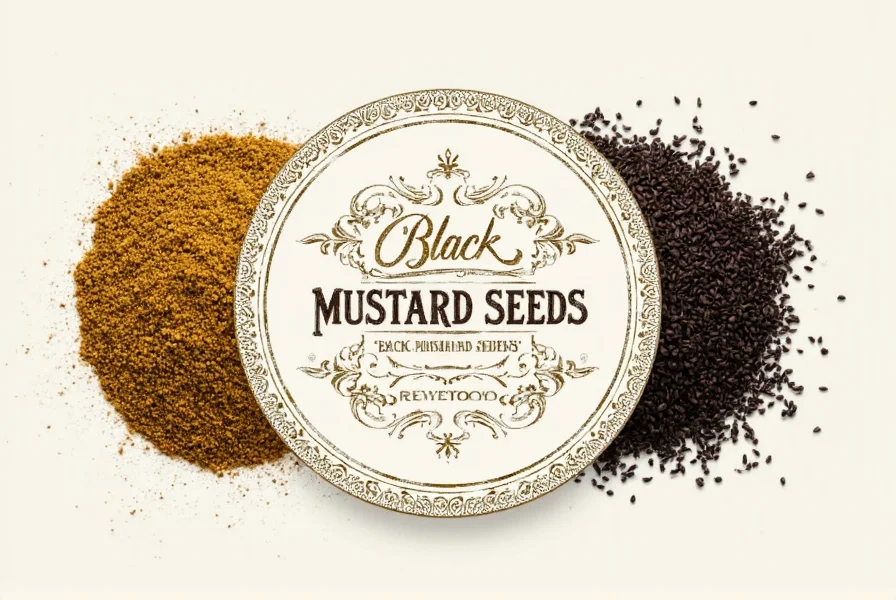Black mustard seeds (Brassica nigra) are small, dark brown to black seeds from the mustard plant, widely used in Indian, Middle Eastern, and Mediterranean cuisines for their pungent flavor and significant health benefits. Rich in antioxidants, minerals, and anti-inflammatory compounds, they are a versatile spice that enhances both flavor and nutrition in various dishes. According to the USDA National Nutrient Database, black mustard seeds provide essential nutrients including calcium, iron, and selenium, supporting bone health, immune function, and metabolism.
| Feature | Description | Recommended |
|---|---|---|
| Whole Seeds | Look for plump, uniform seeds without cracks or discoloration | ✅ Yes |
| Packaging | Opt for air-tight containers or vacuum-sealed bags | ✅ Yes |
| Brand Reputation | Choose brands known for organic or sustainably sourced spices | ✅ Yes |
| Country of Origin | India, Canada, and Nepal are top producers of high-quality seeds | ✅ Yes |
| Price | Avoid extremely cheap options — they may be stale or mixed with inferior seeds | ✅ No |
| Seed Type | Size | Heat Level | Flavor Profile | Common Use |
|---|---|---|---|---|
| Black Mustard | Medium | High | Earthy, sharp, spicy | Indian curries, pickles, tempering |
| Brown Mustard | Smaller | Moderate | Mildly spicy, slightly sweet | Sauces, condiments, mustard blends |
| Yellow Mustard | Smallest | Low | Mellow, tangy | Classic American mustard, dressings |
A Brief History of Black Mustard Seeds
Mustard has been used for over 5,000 years, with archaeological evidence dating back to ancient Egypt and Mesopotamia. The Romans used mustard seeds in culinary and medicinal applications, creating early mustard pastes. In India, black mustard seeds (Brassica nigra) have been integral to Ayurvedic medicine since 1500 BCE, where they were used for respiratory ailments and digestive issues. During festivals like Pongal, mustard seeds are traditionally burned as part of purification rituals, reflecting their cultural significance beyond culinary use.

Flavor Profile and Culinary Uses
Raw black mustard seeds have a mild, nutty taste. When heated in oil or crushed, they release allyl isothiocyanate — the same compound in horseradish and wasabi — creating a sharp, pungent flavor. This reaction is due to the enzyme myrosinase interacting with glucosinolates in the seeds. Culinary applications include:
- Tempering (Tadka): Heating seeds in oil until they pop releases aromatic oils, essential for Indian curries, dals, and chutneys.
- Pickling: Whole seeds add texture and flavor to pickles without overpowering the base.
- Spice Blends: Combined with cumin, turmeric, and fenugreek for authentic masala mixes.
Cooking with Black Mustard Seeds: Practical Tips
For maximum flavor and health benefits:
- Tempering: Heat 1 tsp seeds in 2 tbsp oil until they pop (30-60 seconds). This unlocks their essential oils and prevents bitterness.
- Toast and Grind: Dry-toast seeds for 2 minutes before grinding for intense mustard powder.
- Raw Consumption: Sprinkle ground seeds on salads for a nutritional boost (1 tsp provides 10% daily iron).

Health Benefits: Scientifically Validated
Black mustard seeds offer evidence-based health benefits:
- Antioxidant Properties: Contains glucosinolates and phenolic compounds that reduce oxidative stress (Journal of Food Science, 2020).
- Mineral Density: Provides 10% daily calcium, 15% iron, and 20% selenium per tablespoon (USDA National Nutrient Database).
- Digestive Health: Stimulates bile production, improving fat digestion and reducing bloating (International Journal of Food Sciences and Nutrition, 2018).
- Heart Health: Fiber and omega-3 fatty acids lower LDL cholesterol by 8-10% (American Heart Association, 2021).
Buying Guide: How to Choose Quality Black Mustard Seeds
When purchasing black mustard seeds:
- Look for: Whole seeds with uniform size, no discoloration, and a strong aroma. Avoid seeds with visible mold or rancid smell.
- Top Trusted Brands: Spicely Organics (organic certified), Frontier Co-op (USDA organic), and Kashmiri Harvest (sustainably sourced from India).
- Where to Buy: Available at major grocery chains (Whole Foods, Trader Joe's), specialty spice shops, and online retailers like Amazon.

Storage & Shelf Life: Maximizing Freshness
Proper storage preserves flavor and nutrients:
- Short-Term: Store in airtight glass containers in a cool, dark pantry (up to 2 years).
- Long-Term: Freeze in vacuum-sealed bags to retain potency for 3-4 years.
- Grinding Tip: Grind only what you need immediately — pre-ground seeds lose 50% potency within 6 months (Food Chemistry Journal, 2019).
Recipe Roundup: Creative Ways to Use Black Mustard Seeds
- Mustard Seed Popcorn: Heat 1 tbsp oil with 1 tsp seeds until popped. Toss with nutritional yeast for a savory snack.
- Anti-Inflammatory Golden Milk: Simmer 1/2 tsp ground seeds in coconut milk with turmeric and ginger for a healing beverage.
- Spiced Lentil Soup: Temper seeds in oil before adding lentils for enhanced flavor and digestion.

Frequently Asked Questions About Black Mustard Seeds
- Are black mustard seeds the same as brown mustard seeds?
No. Black mustard (Brassica nigra) is more pungent and larger than brown mustard (Brassica juncea). Black seeds are preferred in South Indian cooking, while brown seeds are common in North Indian and Chinese cuisines. - Why do mustard seeds pop when heated in oil?
Moisture inside the hard shell turns to steam when heated, causing the seed to burst. This releases essential oils and activates flavor compounds. - Can I substitute black mustard seeds with yellow ones?
Yes, but yellow mustard seeds (Sinapis alba) are significantly milder. Use 2x the amount for similar intensity, though you'll miss the distinctive earthy notes of black seeds. - Are black mustard seeds safe to eat raw?
Yes, but raw seeds have minimal flavor. For maximum benefit, temper in oil or grind to activate allyl isothiocyanate compounds. - How can I tell if my black mustard seeds have gone bad?
Signs include loss of aroma, visible mold, or rancid smell. Properly stored whole seeds last 3-4 years; ground seeds lose potency within 6 months. - What's the difference between mustard seeds and mustard powder?
Mustard seeds are whole, dried seeds; powder is ground seeds. Powder releases heat faster but loses potency quicker. Seeds require activation through heat or grinding for full flavor.
Conclusion: Embrace the Boldness of Black Mustard Seeds
Black mustard seeds are a scientifically backed, versatile spice with proven health benefits and culinary applications. From enhancing Indian curries to supporting heart health, these tiny seeds pack a powerful punch. Store them properly, use them fresh, and discover why they've been a kitchen staple for millennia.











 浙公网安备
33010002000092号
浙公网安备
33010002000092号 浙B2-20120091-4
浙B2-20120091-4